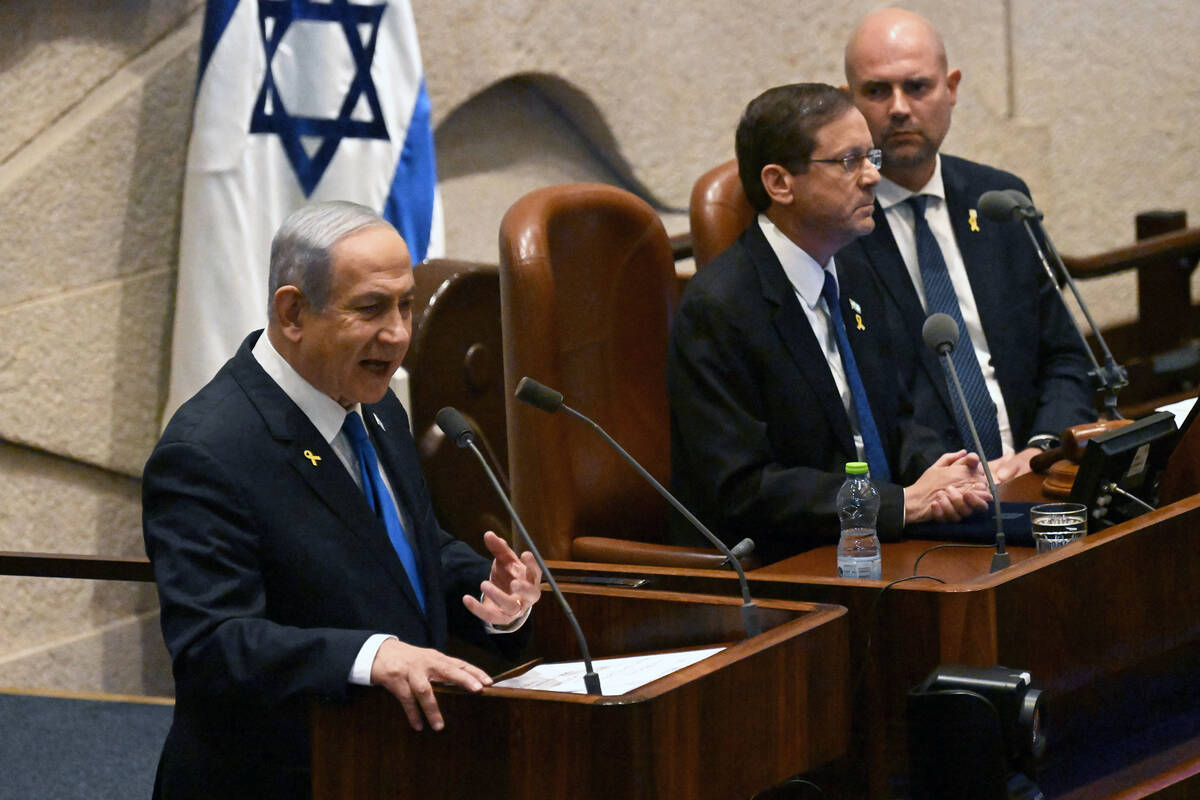Israel discusses new U.S.-led deal to end Hezbollah conflict

Israel is considering a U.S.-led deal to end the conflict in Lebanon and move Hezbollah fighters away from the Israeli border, after assessing the terrorist group’s rocket arsenal has been mostly expended or destroyed.
Prime Minister Benjamin Netanyahu met top aides late on Tuesday to discuss a fresh proposal, his spokesperson said. The White House is sending two of President Joe Biden’s most senior Middle East envoys, Brett McGurk and Amos Hochstein, to Israel on Thursday as part of the talks, another Israeli official said.
The plan, if agreed, would lead to a 60-day suspension of hostilities while mediators craft a lasting peace deal to remove Hezbollah from the border area and bolster the number of United Nations peacekeepers there, Israel’s Channel 12 TV reported.
Many obstacles still need to be overcome, however, as myriad failed attempts to secure a cease-fire between Israel and Hamas in Gaza have demonstrated.
In a televised speech on Wednesday, Hezbollah’s new leader, Naim Kassem, said Israel hasn’t agreed to a deal that’s acceptable to discuss and the group is ready fight on for months or even longer.
Hezbollah has repeatedly said any cease-fire should be linked to one in Gaza, and Kassem reiterated in his speech that the goal is “to protect Lebanon, support Palestinians.” For its part, Israel has said it needs to retain the right to strike Hezbollah even after a truce.
Lebanese Prime Minister Najib Mikati hasn’t been informed of anything significant by the U.S. regarding the latest plan, according to a person familiar with his thinking. Mikati doubts there will be progress on a cease-fire before Tuesday’s U.S. election, the person said.
Meanwhile, fighting continues, and Israel’s military gave an evacuation order for the eastern Lebanese city of Baalbek and some surrounding areas. At least 60 people were killed in Israeli attacks on similar parts of Lebanon earlier this week, the health ministry said.
Hamas-led terrorists killed some 1,200 people and abducted around 250 in the Oct. 7, 2023, attack that triggered the war. Around 100 hostages are still being held in Gaza, about a third of whom are believed to be dead.
Israel’s retaliatory offensive has killed more than 43,000 Palestinians, according to the Hamas-run Health Ministry in Gaza, which does not say how many were combatants.
Hezbollah started firing missiles and drones at Israel a day after the war with Hamas erupted, and has continued its barrage despite suffering heavy losses in the past six weeks. On Wednesday, the Israeli military sounded sirens in Haifa and parts of the Galilee region and said 15 missiles had crossed from Lebanon, some of which were intercepted.
Kassem was appointed Hezbollah leader this week to replace Hassan Nasrallah, who was assassinated in an Israeli airstrike on Beirut last month. Both Hezbollah and Hamas are backed by Iran and considered terrorist organizations by the U.S. and many other countries.
Israel’s Defense Minister Yoav Gallant, speaking on Tuesday, said Hezbollah’s chain of command is now demolished and estimated its missile and rocket capability is 20 percent of what it was pre-conflict.
Talk of cease-fires have helped to push down oil prices. Brent crude sunk more than 6 percent on Monday and Tuesday, before staging a partial recovery on Wednesday. The drop was also due to Israel avoiding Iran’s most sensitive infrastructure — such as oil and nuclear facilities — when it carried out an expected strike on the Islamic Republic on Saturday.
“The war in the north will be over by the end of the year,” Israeli Finance Minister Bezalel Smotrich told reporters on Tuesday, referring to the Lebanese front. He added that 2025 “will not be a year of war, it will be a year of exiting the war.”
Opposition leader and former Prime Minister Yair Lapid said he is receiving updates from the government on efforts to wind down fighting in Lebanon.
“I think it would be right to achieve a diplomatic victory,” he said to Israel’s Army Radio.
The conflict has forced tens of thousands of people to flee their homes on each side of the Israel-Lebanon border area.
Israel’s attacks across Lebanon in the last six weeks have killed more than 2,000 people and displaced around 1.2 million, according to the Lebanese government. Almost 100 Israeli civilians and soldiers have been killed withing Israel due to Hezbollah’s strikes over the last year.
———-
With assistance from Galit Altstein, Ethan Bronner, Omar El Chmouri and Youssef Diab.